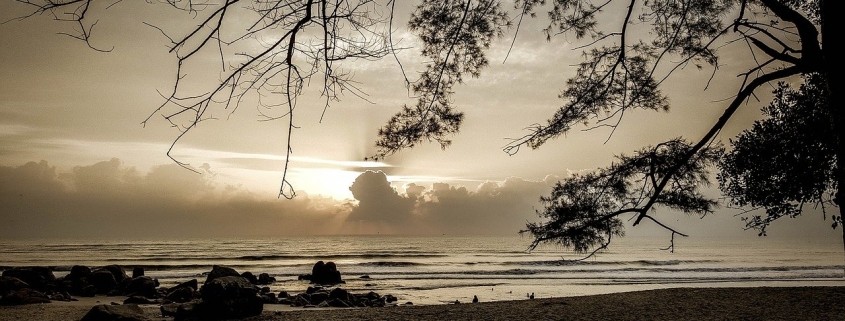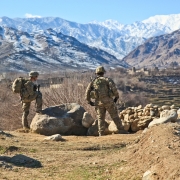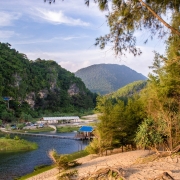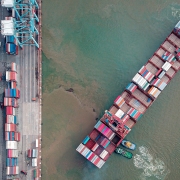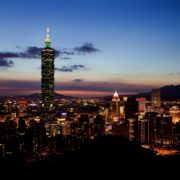What is the Kuantan Doctrine?
Topic of Study [For H2 History Students]:
Paper 2: Regional Conflicts and Co-operation
Source Based Case Study
Theme III Chapter 2: ASEAN (Growth and Development of ASEAN: Building regional peace and security – relations between ASEAN and external powers)
Topic of Study [For H1 History Students]:
Essay Questions
Theme II Chapter 2: The Cold War and Southeast Asia (1945-1991): ASEAN and the Cold War (ASEAN’s responses to Cold War bipolarity)
Historical context: A looming threat of Great Powers
In response to Vietnam’s invasion of Cambodia in December 1978, the Indonesian President Suharto and Malaysian Prime Minister Hussein Onn met in Kuantan in March 1980. Both parties agreed that the Cambodian conflict posed a grave threat to regional security, if left unchecked.
The threat extended beyond the presence of a pro-Vietnam government in Cambodia, particularly the dangers posed by the Soviet Union and China.
The joint statement issued by Malaysia and Indonesia took into consideration the broader security concerns of the two countries, such as the perceived threat posed by China and the increased influence of the Soviet Union in the region. The statement envisaged a Vietnam free from the influences of both China and the Soviet Union and took into consideration Vietnam’s security interests in Cambodia. In other words, the Kuantan Principle sought to bring Vietnam out of the Sino-Soviet dispute and to reduce the influence of these two powers in the region. It also displayed a less confrontational stand toward Vietnam over the Cambodian situation as compared with the ASEAN policy.
An excerpt from “Southeast Asia: A Historical Encyclopedia, from Angkor Wat to East Timor” by Keat Gin Ooi.
However, the Kuantan Doctrine was never put into practice as other member states of ASEAN rejected the proposed solution. For instance, the frontline member Thailand was concerned with its border security, given its proximity to Cambodia.
Soviet Union or China: A greater threat?
Although ASEAN eventually issued a joint statement to deplore the Vietnamese aggression, diverging perceptions among some member states had given rise to disagreements.
From Suharto’s point of view, China was deemed a more serious threat than Vietnam. As such, Indonesia put forward the idea of granting a certain degree of autonomy to Vietnam for its presence in Cambodia.
As the interlocutor of ASEAN on the Kampuchea issue, Indonesia was mainly concerned that the conflict might divide the region into two clusters: maritime ASEAN and Indochina under Vietnamese domination. Indonesia feared that a bipolar Southeast Asia could pit the communist against the non-communist states, thereby opening the door to intervention by external great powers.
An excerpt from “Indonesia’s Ascent: Power, Leadership, and the Regional Order” by Christopher Roberts, Ahmad Habir and Leonard Sebastian.
On the other hand, both Thailand and Singapore perceived a Soviet-backed Vietnam as a more significant threat than China. To some political observers, inaction may mean that neighbouring countries in Southeast Asia condone sovereignty violation.
However, Singapore’s strident anti-communist posture was essentially aimed at the Soviet Union and its perceived regional proxy, Vietnam. Hence, curiously enough, whereas there was clear evidence of Chinese support for communist insurgency in Southeast Asia, the most aggressive policy pronouncements against communism were those aimed at the Soviet Union.
An excerpt from “Realism and Interdependence in Singapore’s Foreign Policy” by Narayanan Ganesan.
What can we learn from this article?
Consider the following question:
– How far do you agree that Singapore’s foreign policy responses were successful during the Third Indochina War?
Join our JC History Tuition to study conflicts and challenges such as the Third Indochina War. The H2 and H1 History Tuition feature online discussion and writing practices to enhance your knowledge application skills. Get useful study notes and clarify your doubts on the subject with the tutor. You can also follow our Telegram Channel to get useful updates.
We have other JC tuition classes, such as JC Math Tuition and JC Chemistry Tuition. For Secondary Tuition, we provide Secondary English Tuition, Secondary Math tuition, Secondary Chemistry Tuition, Social Studies Tuition, Geography, History Tuition and Secondary Economics Tuition. For Primary Tuition, we have Primary English, Math and Science Tuition. Call 9658 5789 to find out more.

